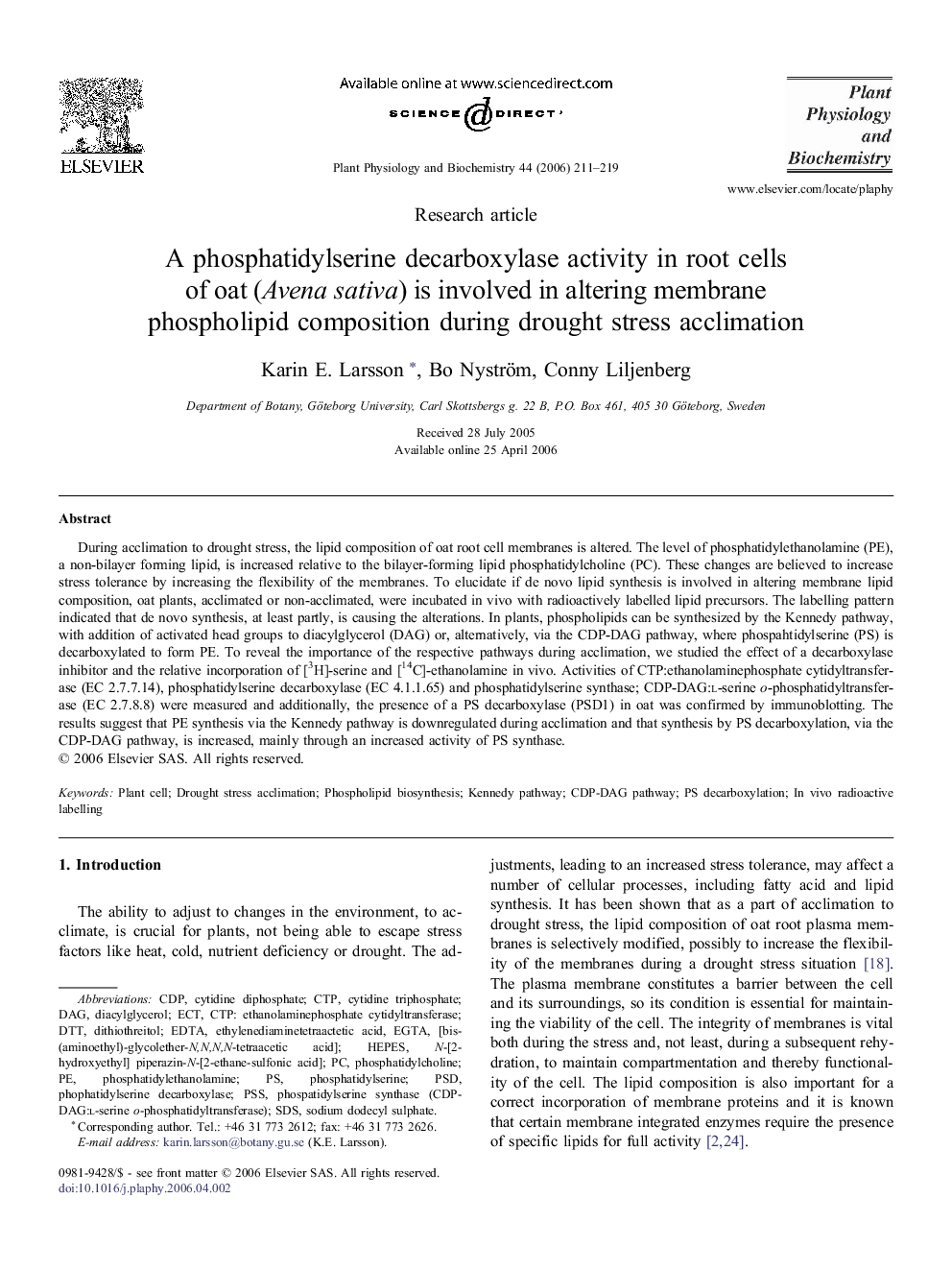| Article ID | Journal | Published Year | Pages | File Type |
|---|---|---|---|---|
| 2016873 | Plant Physiology and Biochemistry | 2006 | 9 Pages |
During acclimation to drought stress, the lipid composition of oat root cell membranes is altered. The level of phosphatidylethanolamine (PE), a non-bilayer forming lipid, is increased relative to the bilayer-forming lipid phosphatidylcholine (PC). These changes are believed to increase stress tolerance by increasing the flexibility of the membranes. To elucidate if de novo lipid synthesis is involved in altering membrane lipid composition, oat plants, acclimated or non-acclimated, were incubated in vivo with radioactively labelled lipid precursors. The labelling pattern indicated that de novo synthesis, at least partly, is causing the alterations. In plants, phospholipids can be synthesized by the Kennedy pathway, with addition of activated head groups to diacylglycerol (DAG) or, alternatively, via the CDP-DAG pathway, where phospahtidylserine (PS) is decarboxylated to form PE. To reveal the importance of the respective pathways during acclimation, we studied the effect of a decarboxylase inhibitor and the relative incorporation of [3H]-serine and [14C]-ethanolamine in vivo. Activities of CTP:ethanolaminephosphate cytidyltransferase (EC 2.7.7.14), phosphatidylserine decarboxylase (EC 4.1.1.65) and phosphatidylserine synthase; CDP-DAG:l-serine o-phosphatidyltransferase (EC 2.7.8.8) were measured and additionally, the presence of a PS decarboxylase (PSD1) in oat was confirmed by immunoblotting. The results suggest that PE synthesis via the Kennedy pathway is downregulated during acclimation and that synthesis by PS decarboxylation, via the CDP-DAG pathway, is increased, mainly through an increased activity of PS synthase.
